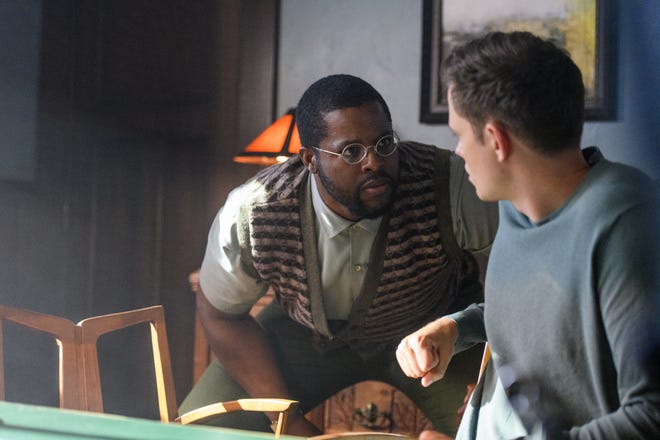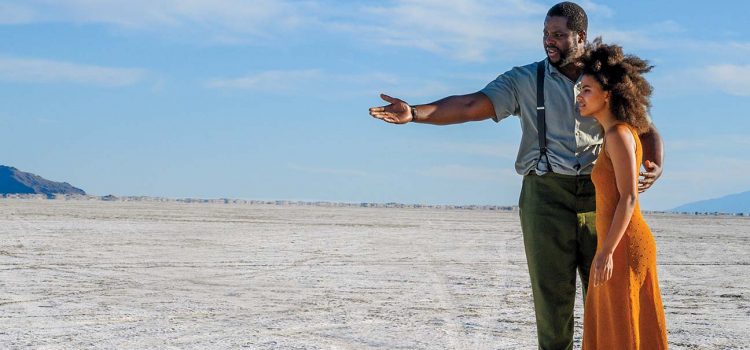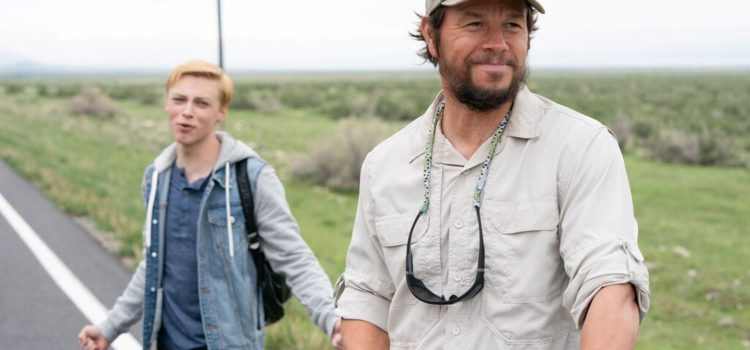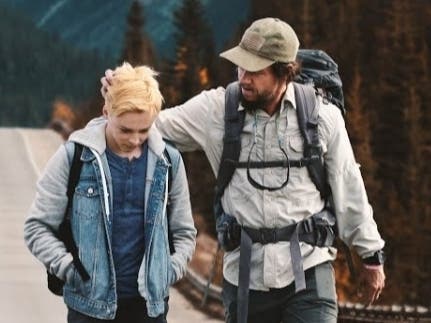By Alex McPherson
A thoughtful, meditative, unabashedly far-out sci-fi gem, Edson Oda’s directorial debut, “Nine Days,” asks intriguing questions about the rollercoaster of life.
This quietly bonkers film centers around Will (Winston Duke), an individual deciding which souls get the privilege of being born in a human body. He watches present-day Point Of View footage from everyone he’s allowed into the “real world” from the comfort of his modest house in the middle of nowhere, a salt lake limbo, taking copious notes on their day-to-days in an attempt to understand humanity.
Sometimes accompanied by his good-hearted helper and friend, Kyo (Benedict Wong), Will takes pride in seeing them lead healthy, happy lives. One of them unexpectedly perishes, however, tearing Will apart inside as he struggles to make sense of what happened — vowing to never let it happen again.
Thus, a vacancy opens that needs to be filled. Will meets a variety of applicants wishing to experience life. This archetypal group of souls includes the self-doubting Mike (David Rysdahl), the laid-back Alexander (Tony Hale), the hard-justice-driven Kane (Bill Skarsgård), the earnest, wide-eyed Maria (Arianna Ortiz), and the inquisitive, plot-altering Emma (Zazie Beetz), among others.
They are asked to watch the POV screens and to give answers to various questions examining their moral toughness over the course of nine days, with a victor announced at the end. Upon failing, some applicants get a chance to have a moment they’ve observed recreated for them before disappearing into nothingness. As the group winnows in the passing days, Will is forced to reckon with his own inner demons and consider the unknowable nature of life itself.
A captivating effort from everyone involved, “Nine Days” uses this bold premise to explore what it means to be alive. Oda’s unconventional allegory plays out in frequently powerful fashion — carried by excellent performances and an ethereal, at times mournful atmosphere pulsing with feeling. Along with methodical editing, arresting cinematography, and Antonio Pinto’s haunting score, the film brings viewers into this twisted median space in a manner mixing warmth with menace.
Although the finer details of the film’s universe aren’t clarified (don’t think too much about how or why Will acquired his “job”), “Nine Days” sinks emotional hooks into viewers from the first frames onward. It’s somewhat of a downbeat watch, prizing patient reflection over bombast, but “Nine Days” knows when to strike lighter notes as well and occasionally poke fun at itself despite the bleakness.
Duke does sterling work portraying a mysterious man playing God who’s trapped by his own cynical worldview, his decisions rooted in a desire to protect the applicants from a reality he views as cruel and demoralizing. Thanks to Duke’s pathos and the script’s empathy towards Will, his troubled mindset remains easy to connect with regardless of his flaws. Duke, with wire-rimmed glasses and a reserved demeanor, conveys Will’s inner tensions with a subtle performance that brilliantly showcases his severe facade gradually being chipped away.
Similarly effective is Beetz, a compassionate critical-thinker who doesn’t view human beings in a simplistic manner. Rather, she realizes the importance of relishing the good in the world, not letting negativity or nihilism corrupt her worldview. Her conversations with Will, inquiring into his own troubled past and encouraging him to reflect on what it all means, feature some of the most moving moments in “Nine Days,” tying into overarching takeaways.
Wong is a lovable, comforting presence as Kyo, helping Will recognize his faults and his potential to grow as a human being, providing the bulk of the film’s unexpected humor. The other characters, brought to (sort-of) life by a wonderful cast, get less screen time and aren’t as well developed as the main three, but there’s more to most of them than meets the eye. Like every human soul, they cannot be simplified to a few characteristics — rendering their passage or failure all the more heartbreaking. Their “Last Moments” are masterfully directed and difficult to forget.
Heavy without being dour, intricate yet accessible, “Nine Days” builds towards a conclusion that contains one of 2021’s best scenes. All the emotions felt throughout the film coalesce into a marvelous, life-affirming, slightly convenient resolution that’s aware of its own bizarreness while remaining highly impactful.
An assured effort from everyone involved, “Nine Days” satisfies both the mind and the soul. The world is full of darkness, but there’s still rays of hope bursting through the shadows. Oda’s film is a provocative reminder to appreciate the light where we can and strive to see another day in our beautifully inexplicable existence.

“Nine Days” is a 2020 sci-fi fantasy drama written and directed by Edson Oda and starring Winston Duke, Benedict Wong, Zazie Beetz, Tony Hale, David Rysdahl, Arianna Ortiz and Bill Skarsgard, Rated R for language, its runtime is 2 hours, 4 minutes. The film is available in theaters beginning on Aug. 6. Alex’s Grade: A-

Lynn (Zipfel) Venhaus has had a continuous byline in St. Louis metro region publications since 1978. She writes features and news for Belleville News-Democrat and contributes to St. Louis magazine and other publications.
She is a Rotten Tomatoes-approved film critic, currently reviews films for Webster-Kirkwood Times and KTRS Radio, covers entertainment for PopLifeSTL.com and co-hosts podcast PopLifeSTL.com…Presents.
She is a member of Critics Choice Association, where she serves on the women’s and marketing committees; Alliance of Women Film Journalists; and on the board of the St. Louis Film Critics Association. She is a founding and board member of the St. Louis Theater Circle.
She is retired from teaching journalism/media as an adjunct college instructor.



